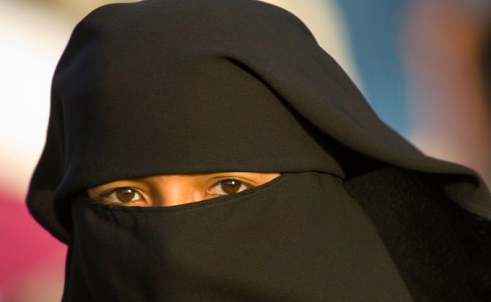dear ninjas
On my first day in the clinic here, one of the medical assistants came to me and said in French, “Do you mind seeing the ninjas?” I wracked my brain for a few minutes, trying to figure out what he meant, trying to remember a French word that sounded like “ninja.”
Finally I had to ask my translator what the medical assistant was asking.
“He’s asking if you will see the ninjas," my translator said.
“What ninjas???” I asked, exasperated. What on earth were they talking about?[br] “You know,” my translator said, pointing in the distance to a woman in a burka walking towards the hospital. “The ninjas.”
He said that the other PA who was working that day was male, and he was unsettled by women whose faces he couldn’t see, and refused to see them if they wouldn’t take off their veils.
“Will you see them?” the medical assistant asked again.
I nodded. Yes, I would see all the ninjas.
Since then, I’ve seen lots of women in burkas, who usually come from a few hours north of Mango, near the border of Burkina Fasa, where there is a large, conservative Muslim population.
They’re usually accompanied by their husbands. Once they get into the exam room, some of them remove the veil that covers their eyes. Some of them remove the veil that covers their eyes and the one that covers their head. Others take off their veil and their robes.

I’ve seen two women whose husbands wouldn’t let them remove anything — including the black gloves on their hands and the black socks that covered their feet. There wasn’t even a millimeter of skin showing. I wondered how they felt about living their lives unseen by everyone except their husbands.
The ultimate Invisible Girls.
***
The second week I was here, I worked an overnight shift in the hospital. Two baby boys died, and another boy in pediatrics died. The maternity ward and the pediatrics ward were full of baby girls.
“It seems like just the boys are dying,” I told the pediatrician. “Has anyone ever studied survival rates based on gender?”
“Oh yes,” she said. There was a study in the NICU, and it turns out that black baby girls do the best, followed by black baby boys, followed by caucasian baby girls. Caucasian baby boys do the worst.
From birth, these little Togolese girls truly are ninjas, born with an inexplicable amount of fight in them.
Dear Ninjas, I prayed as I left pediatrics that night, the dimmed lights shining on the cribs of little girls with malaria and typhoid and meningitis. Keep fighting.
***
This summer, two girls who live in the U.K. scored higher on I.Q. tests than Einstein or Stephen Hawking.
Contrary to what Harvard president Lawrence Summers implied in a now-infamous speech he gave in 2005, it turns out that maybe women aren’t genetically predisposed to do worse in math and science than men after all.
Dear Ninjas, I prayed as I read the news story this week that a second girl had scored a 162 on her I.Q. test. Keep fighting.
***
I've been thinking a lot about ninjas and invisible girls this week.
As I learned when I was working with Somali refugee girls who nearly froze and starved to death in the U.S., invisible girls are everywhere. In fact, the dedication of my book reads,
For the Invisible Girls.
All of them.
Those of us who are not invisible have to do better at seeing these girls, and helping them find their voices — whether they’re hiding under a burka or a ponytail or a different skin color or a different language or an apron or a lab coat or a basket on their head.
And until then….my dear, invisible ninja sisters…..wherever you may be….
Keep fighting. Insist on being seen.
Insist on being heard.
Insist on being valued.
Insist that your mind and your heart and your voice matter.
Because they do.
Because you do.